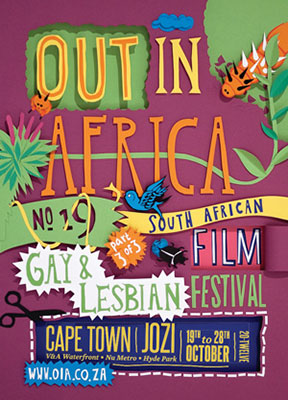FUNDING INDEPENDENT CINEMA
 The film industry in South Africa is increasingly growing in reputation and is now at a point where it can compete nationally. Both local and overseas filmmakers are keen to film in the country’s many beautiful and diverse locations.
The film industry in South Africa is increasingly growing in reputation and is now at a point where it can compete nationally. Both local and overseas filmmakers are keen to film in the country’s many beautiful and diverse locations.
Add this to much lower production costs and an exchange rate that favours many other countries, it’s not hard to see why people are flocking to South Africa to make films, rather than the more traditional locations in Europe and America.
One of the most successful and acclaimed South African films is Totsi. Directed by Gavin Hood, the film follows the life of a young gangster living in Soweto. Totsi won an Academy Award for Best Foreign Language Film in 2006.
Other high profile movies include District 9. Released in 2010, this hugely successful science fiction film focused on a low class of aliens who were forced to live in Johannesburg’s slums. Its obvious political and social commentary ensured it was nominated for four Academy Awards, including the coveted Best Picture.
Award winning local films are also growing in reputation. Oscar nominated movie Yesterday follows the life of a mother who is HIV positive, U Carmen E Khayalitsha is a movie in the Xhosa language which was so successful it won the Golden Bear award at the Berlin Film Festival in 2005.
Funding for local films is partly provided by the National Lottery Distribution Trust (see here for details lotteryresults.co.za) among others, and it’s possible that the online lotto games may soon look to offer similar funding.
All of this success, quality and creativity led to an increasing amount of successful big budget movies being filmed in South Africa, including the fourth Mad Max movie, the Leonardo DiCaprio starring Blood Diamond and Invictus, which was directed by Clint Eastwood.
Nic Cage’s 2005 The Lord of War is a great example of the many and varied beautiful locations that can be found in South Africa – Cape Town was used to portray the Middle East, Afghanistan and Sierra Leone, among other places.
The government is clear in the view that film is part of rebuilding the country’s heritage and encourages local content to reflect this. Reclaiming history, an increasing amount of South African people are now able to tell their stories through film and the number of local movies is increasing steadily every year. In 2009, 13 films were released and by 2012 this had almost doubled with the release of 24 South African movies. The highest grossing South African film so far is Schuks Tshabalala by Leon Schuster, which made R37 million at the box office a few years ago in 2010.
There are many diverse and varied film festivals throughout South Africa, reflecting the many different genres of movies.
For example, the Out in Africa South African Gay and Lesbian Film Festival started back in 1994 when the South African constitution included a clause to stop discrimination based on sexual orientation. The Festival is an important movement which tackles the fact that the LGBT community in South Africa is not visible following the decades of discrimination and repression during apartheid.
The festival is held every year in Cape Town and Johannesburg and has a programme of smaller film festivals in other towns. Both international and local films are shown, covering all genres from comedy to drama.
Leave a Reply